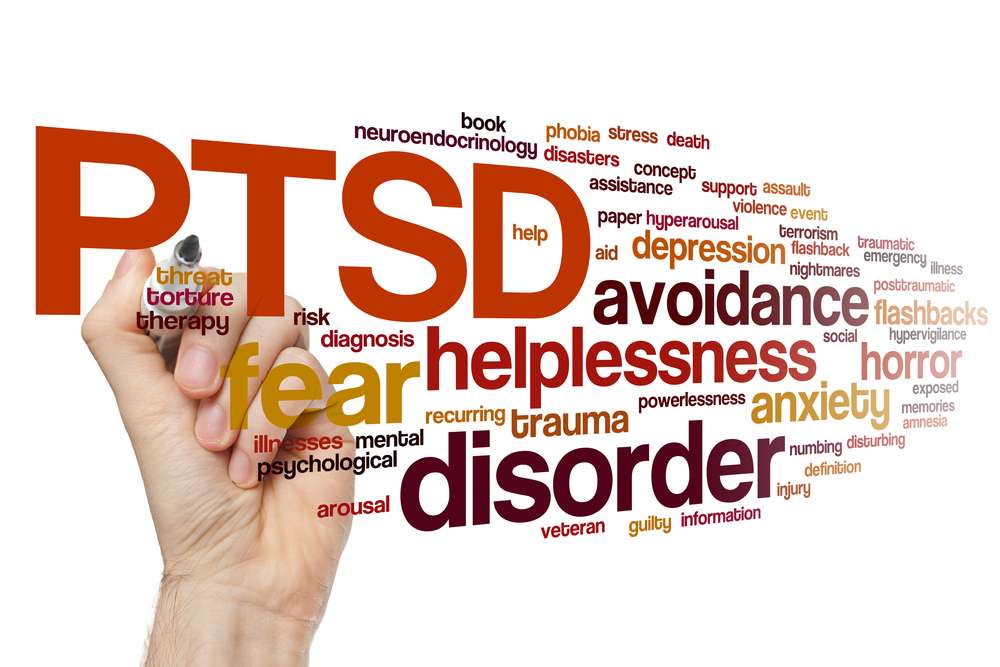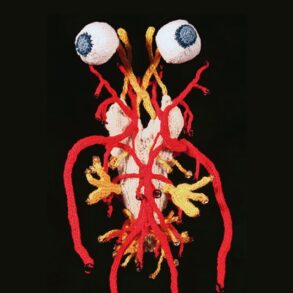Many people lightheartedly joke about “having PTSD” (posttraumatic stress disorder) after unpleasant life experiences. But those who live with this debilitating condition know that it’s anything but a joke.
The American Psychiatric Association states that PTSD “is a psychiatric disorder that may occur in people who have experienced or witnessed a traumatic event such as a natural disaster, a serious accident, a terrorist act, war/combat, or rape or who have been threatened with death, sexual violence or serious injury.”
Symptoms can be debilitating and interfere with everyday life. They include feelings of shame, fear, self-destructive behavior, intrusive thoughts, aggressive behavior, distressing dreams, trouble sleeping and more.
If you’re part of the 3.5% of the U.S. adult population that suffers from PTSD, perhaps you’ve tried a variety of treatments but these symptoms keep cropping up, lessening your quality of life.
Well, now a new treatment is offering hope to many who thought relief was impossible.

Understanding the brain’s fight-or-flight response
When your brain perceives that you’re in danger, it activates the fight-or-flight response, which is also known as the acute stress response. Verywell Mind states that this danger might be something physical, such as a barking dog, or it may be psychological, like preparing to give a big presentation. Sometimes it can be triggered by something that isn’t a true threat, but your brain thinks it is. (Phobias are a good example. Someone with claustrophobia — the fear of confined spaces — may feel their heart start to race while riding in an elevator, for instance.)
While this can serve as a good defense mechanism to protect yourself in harmful situations, some people — including those with PTSD — may suffer from an overactive fight-or-flight response.
According to WebMD, “PTSD causes your brain to get stuck in danger mode. Even after you’re no longer in danger, it stays on high alert. Your body continues to send out stress signals, which lead to PTSD symptoms. Studies show that the part of the brain that handles fear and emotion (the amygdala) is more active in people with PTSD.”
If this has been your experience, it’s time to finally break the cycle.
How a Stellate Ganglion Block (SGB) can ease your troubled mind
For decades, doctors and researchers have been working to find a good solution for people who suffer from PTSD. But developing an effective treatment that’s safe and fast-acting (with few side effects) has proven difficult. One study published on PubMed Central reports that “success rates of PTSD treatments are generally variable, with remission rates that range from 30% to 40%.” But now a new treatment called Stellate Ganglion Block (SGB) is showing promising results and might just offer the relief people are looking for.
SGB is a simple outpatient procedure involving an injection into the base of the neck, where the stellate ganglion — a collection of nerves — is located. Since this is connected to the amygdala (the part of the brain that handles fear), it can temporarily subdue the fight or flight response.
RTI International launched a randomized, controlled trial of SGB in 2014 and concluded in 2019 that the treatment “is indeed effective” after monitoring patient health outcomes for eight weeks after injections. The study also showed improvement in depression, distress, anxiety, pain and physical and mental functioning.
“SGB is a true breakthrough in PTSD treatment,” states the nonprofit research institute. “It is a powerful new option for people suffering from PTSD—one that may be more readily accepted by military service members and veterans, for whom the stigma associated with mental healthcare is often a deterrent to seeking treatment. We hope that our study is the first step to healing for millions of veterans and others for whom PTSD symptoms have long been a barrier to a better life.”
A different PubMed Central study concluded that SGB “is a minimally invasive procedure with an excellent safety profile that may provide sustained relief of PTSD symptoms. The procedure may also provide benefit for those who are resistant to psychotropic intervention.”
So far, the outlook is positive that SGB can be a safe and effective alternative for PTSD and anxiety treatment. The best way to find out if it’s right for you is to consult a medical professional.
Why it’s important to seek treatment right away
If you or someone you know suffers from PTSD or severe anxiety, it’s important to get medical help as early as possible. Apart from the toll this condition takes on a person’s mental health, it can also cause serious physical harm to the brain. WebMD states that PTSD can cause the hippocampus (the area that controls your memory) to get smaller over time.
Early treatment improves your quality of life in both the short and long term, so don’t put off getting the help you need! Schedule an appointment with Sterling Orthopedic Pain & Spine and take back control of your life.
The opinions and conclusions expressed in this article are the sponsor’s own and do not reflect the views or opinions of KSL.com. This Site Does Not Provide Medical Advice. Any content on this Site, such as text, graphics, images, information obtained from, or contained on this Site are for informational purposes only. The content is not intended to be a substitute for professional medical advice, diagnosis, or treatment. Always seek the advice of your physician or other qualified health provider with any questions you may have regarding a medical condition. Never disregard professional medical advice or delay in seeking it because of something you have read on this site! The owner and operator of this site do not recommend or endorse any specific tests, physicians, products, procedures, opinions, or other information that may be mentioned on the site. Reliance on any information provided by the Operator, including their employees, contractors or others appearing on the Site at the invitation of the Operator, or other visitors to the Site is solely at your own risk. If you think you may have a medical emergency, call your doctor or 911 immediately.







